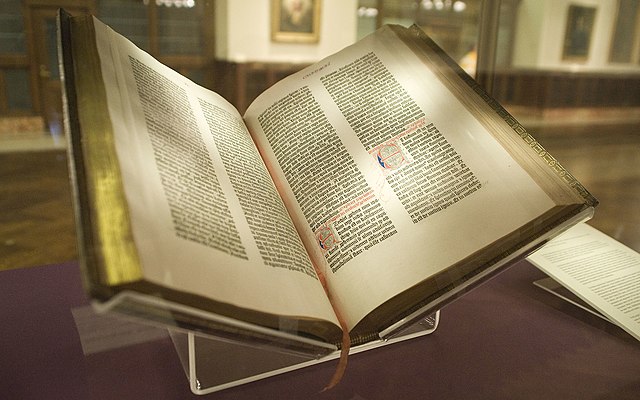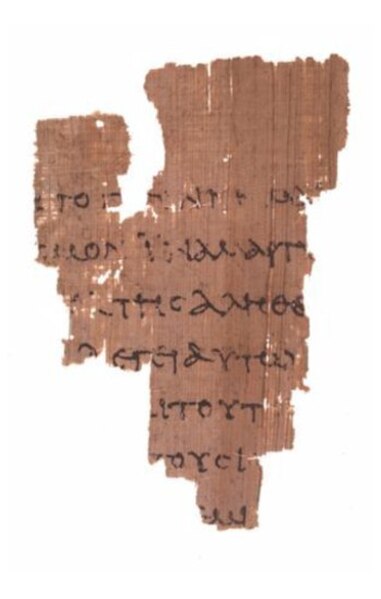The term Catholic Bible can be understood in two ways. More generally, it can refer to a Christian Bible that includes the whole 73-book canon recognized by the Catholic Church, including some of the deuterocanonical books of the Old Testament which are in the Greek Septuagint collection, but which are not present in the Hebrew Masoretic Text collection. More specifically, the term can refer to a version or translation of the Bible which is published with the Catholic Church's approval, in accordance with Catholic canon law.
The prologue of the Gospel of John, Sixto-Clementine Vulgate, 1922 edition
The contents page for a complete 80‑book Bible in the King James Version, listing "The Books of the Old Testament", "The Books called Apocrypha", and "The Books of the New Testament"
The Bible is a collection of religious texts or scriptures, some, all, or a variant of which are held to be sacred in Christianity, Judaism, Samaritanism, Islam, the Baha'i Faith, and other Abrahamic religions. The Bible is an anthology originally written in Hebrew, Aramaic, and Koine Greek. These texts include instructions, stories, poetry, and prophecies, among other genres. The collection of materials that are accepted as part of the Bible by a particular religious tradition or community is called a biblical canon. Believers in the Bible generally consider it to be a product of divine inspiration, but the way they understand what that means and interpret the text varies.
The Gutenberg Bible, published in the mid-15th century by Johannes Gutenberg, is the first published Bible.
The Book of Genesis in a c. 1300 Hebrew Bible
Paul the Apostle depicted in Saint Paul Writing His Epistles, a c. 1619 portrait by Valentin de Boulogne
The Rylands fragment P52 verso is the oldest existing fragment of New Testament papyrus, including phrases from the 18th chapter of the Gospel of John.






